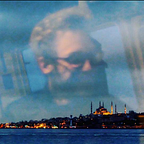On Science vs. Spirituality
What is real? Is there such a thing as an objective reality? Do you see what I’m seeing? Do you feel the same way I do? These questions are at the heart of humanity’s struggle towards harmony.
We live in a time when we are more certain of other people’s experience than our own. We feel certain about a law that governs subatomic particles observed by people we have never met but ignore the reality of our own dreams and even our feelings.
Science is at the forefront of this battle to establish an objective reality. The scientific method allows us to establish objective truths through experiments that consistently provide the same results no matter who is observing the phenomenon.
It feels as though the scientific process removes the requirement of trust in others to know an objective truth. This brings an overwhelming sense of calm to us, knowing we can be on the same page without the emotional risk of trust. This of course is an illusion. Instead of having to trust one person’s count we now trust in a vast number of highly educated and credible scientists. It is far less probable that a high number of scientists conspire to lie to the world.
However even the most obvious scientific truths are challenged by some and increasingly so. The recent rise of the flat-earth movement is a great example of this. Like in every craziness, there is wisdom in this too, the wisdom of acknowledging that we can only be sure of our own observations and experiences, everything else requires faith in others.
This realization opens the doors of spiritual exploration to us. We now see a lot more value in our own subjective experiences like our feelings, dreams and spiritual experiences. We pay more attention to the shape of our consciousness at any given moment. This is an immense step towards getting to know ourselves and expanding our experience out of the limits of our thinking minds.
This process of spiritual seeking involves risk, risk of facing the reality of our absolute solitude in our own subjective experience, risk of remembering that all our attempts of establishing an objective reality is really just trying to meet at the lowest common denominator.
That’s why scientific knowledge by definition has to follow behind. Every scientific proof has to be experienced subjectively before it’s proven through the scientific method.
Before we knew that the earth was round, the earth was already round. Things don’t become real once they are proven, they always have been. It is important to keep this in mind while we have our own subjective experiences that science can’t explain yet. Whether our interpretations of these experiences are accurate or not, let’s acknowledge the reality of the experiences themselves.
